Everything you need to know about the Bluecard in Vietnam
Contents [show]
The motorcycle Bluecard in Vietnam is the ownership paper of the motorbike. The information on the Bluecard identifies the bike’s engine number, frame number, license plate number, and owner. There are real blue cards, fake blue cards, and everything in between.
In Vietnam, there is a “scale of legitimacy” where the motorbike’s value directly impacts the importance of “how by the book” your papers need to be. We’ll explain everything below.
Can A Foreigner Buy A Motorbike In Vietnam?
Foreigners, tourists, ex-pats, travelers, and anyone else in any category can buy a motorbike in Vietnam. When buying and selling a motorbike in Vietnam, you must be absolutely sure to have the Bluecard for it. The Bluecard represents roughly 50% of the bike’s value, and you can’t resell a motorcycle without it. Services such as transporting the motorbike by train or bus will also require a Blue Card to be presented.
Depending on if you plan to purchase a $300 Honda Win, a $1500 Honda Winner, or a $15000 BMW will greatly affect the importance of your Bluecard and its position on the “scale of legitimacy“.
The Scale Of Legitimacy
When purchasing a motorcycle, the scale of legitimacy looks like this;
- Level 1: $500 and under. The Blue Card could be a paper copy or even a fake. Your bike isn’t worth anything; no one cares about the paperwork.
- Level 2:$1000-$3000. The Blue Card must be real, and the bike’s identification numbers must match what’s on your Blue Card. The name registered on the blue card isn’t that important, and generally, even the locals won’t bother to go through the process of transferring the names on the paperwork.
- Level 3: $3000+. The paperwork for the motorbike needs to be real, with matching bike identification numbers, and the owner’s name should be correctly on the document.
- Level 4: Unobtainable—Strict import control limits what motorbikes are sold legally in Vietnam. Huge markets and niches of popular models that were never legally sold in Vietnam are all illegally imported with fake papers. For example, nearly all dirt bikes were never officially sold in Vietnam, and so they are all fake. If the bike of your dreams was never officially sold in Vietnam, then you have no choice but to get fake papers.
We have an article about how to buy a dirt bike in Vietnam.
Renting a motorcycle.
- Traveling within Vietnam does not require the original Blue Card; instead, you’ll be given a copy.
- You’ll require the Bluecard for border crossings between Vietnam, Laos, and Cambodia. In this case, a rental company typically charges you a deposit for the motorcycle’s value. When you bring the bike back, you’ll get your deposit back.
What to watch out for.
- MBC and GTHL. You’ll see these code words for fake Bluecards listed in online advertisements.
- Non-transferable. This happens when a motorcycle changes owners many times, and the original owner on the papers is lost along the way. On a cheap bike, this is no problem. On a bike worth $3000+, you need to consider the very mild risk of slightly bending the rules with ownership.
- It is becoming common for motorbikes to be registered under different models. A motorbike that once legally existed in Vietnam has legitimate papers. Take the VIN and Engine number from a legal motorbike and put it onto a motorbike that has been illegally imported. Now you have a motorbike that does belong to a set of legal papers and are in the police database. This does seem to work, and it is becoming a very common way around the problem of illegally imported motorbikes.
Transferring a Bluecard
The process of transferring a blue card is a complex one. It also varies from province to province, so there is no set process for documenting. The complexity and cost of transferring blue cards are among the main reasons why older second-hand motorbikes eventually become nontransferable. The motorbike’s value is no longer worth going through the cost and time of this laborious process. So, through several sales, the original owner (on the blue card) is eventually lost in history.
If your motorbike is not worth $3000 +, it isn’t worth worrying about the transfer process; simply having a blue card in any name is satisfactory.
Usually, the seller will apply to the Police to de-register the motorbike. This costs approximately 1 million dong. The number plate, vin number, chassis number are all sent off to the Police for the de-registration process. This takes approximately 10 days, which means the motorbike has no number plate for quite some time. The de-registration papers are given to the new owner, who is then responsible for re-registering the motorbike. The registration process requires tax and other fees. The cost depends on the value of the motorbike, the power of the motorbike, and the province to which the motorbike is being registered. There is no way to create an exact number.
Registering the Bluecard as a foreigner NN number plate
The NN number plate is as much a myth as a reality. NN numbers are specifically for foreigners and allow the Police to see that the owner is a foreigner. When buying a new motorbike, it is possible to get the NN number plate if you legally work in Vietnam and have all the documents for your stay here. However, transferring the NN plate to a Vietnamese is a complex process (that we have never seen done). Ultimately, registering with the NN number plate actually lowers the bike’s value because you can’t transfer the papers to a local. We don’t have specific information on registering a NN number plate. The process is best tackled through the dealership you wish to purchase from.
The dealership is also unlikely to know how to do it, and ultimately, you will find the NN numbers plate ends with a brick wall, and you will eventually give up on the idea.
Generally, foreigners register motorbikes in their wife’s, girlfriend’s, or even colleague’s name.
Losing a blue card
If the person whos name is on the bluecard is someone that you don’t know, for example a “non transferable blue card” then it is impossible to obtain a replacement blue card.
The motorbikes value has now dropped approximately 50% of it’s value and there is very little you can do about it. The only solution here, is to look on facebook for services that offer fake replacements.
If you lose the blue card and you do know the owner who’s name is on the paperwork, for a example the motorbike belongs to a rental company. The person or rental company will be able to get a replacement. The true cost of the replacement is around 1 million VND, but the process and paperwork to get the replacement is hugely time consuming. Furthermore, technically, until the replacement blue card arrives, it is illegal for the motorbike to be on the road, which is problematic for rental companies.
Replacement blue cards can take up to six months to arrive, so ultimately losing a rental companies blue card is causing serious “loss of use” to the rental company.
A motorbike rental company will charge you heavily for losing the bluecard.
If you park the motorbike in a parking lot, and then lose the blue card alongside the parking ticket (common with losing your wallet with “everything inside”) then you will have a difficult time with the parking staff to get the motorbike out.
Generally the situation can be fixed if you have a picture of the blue card on your phone, but this is not a guarantee. Ultimately the unlucky security guard who finds themself dealing with your mess has a decision to make. They can let you out of the parking lot, but risk losing their job.
Or they can sit there and listen to a crying foreigner who has lost everything.
These situations are extremely tough to deal with, but usually through a company like Tigit we will be able to persuade the security guard onto your side!
Police Confiscating Bikes
Parking Lot Security
Fake Bluecards in Vietnam
When you initially deal with motorbike registrations in Vietnam, a Bluecard is created with numbers matching both the VIN and chassis of the motorbike. This information is then added to the police database and can be referenced later for ownership transfer or to deal with illegitimate motorcycles. It seems like they have everything covered, however, it is easy to illegally change the bike’s information or the Bluecards information.
VIN/chassis numbers and engine numbers can be removed and changed, Bluecards forged, and there is no public access to registered motorcycle information on the database. The reality is that it’s very difficult to know if a motorcycle is legitimate or not.
Fake Bluecards might exist for the following reasons
- Stolen motorcycles. Motorcycles are often stolen without a Bluecard. A Bluecard is created, the bike is sold to an unsuspecting buyer, and the thief makes his money. If you are caught with a stolen bike, it will be confiscated.
- Illegally imported motorcycles. Imported manual motorbikes are considered luxury goods in Vietnam and come with significant import taxes. To avoid this, they are sometimes illegally imported, and then a fake Bluecard is created to legitimize the motorcycle and its value.
- Unresolvable problems. Old motorcycles, motorcycles who’s original owner can’t be contacted or has passed away, and motorcycles without an original Bluecard will all be forced to have a fake Bluecard.
- Custom motorcycles. Combining chassis and engines from different motorcycles to make a custom bike creates an unusable Bluecard. These bikes often have fake Bluecards made to compensate for the creation.
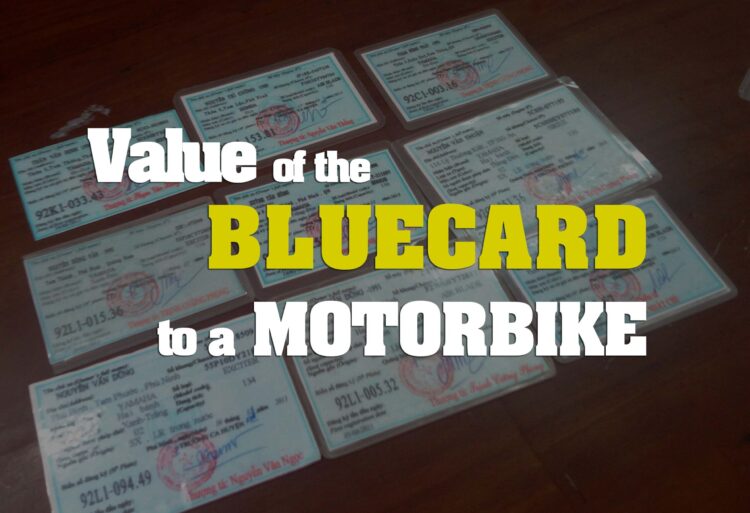
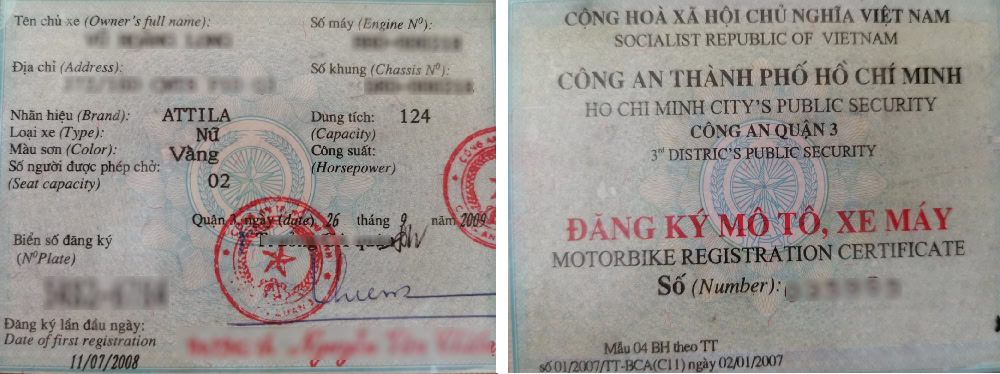
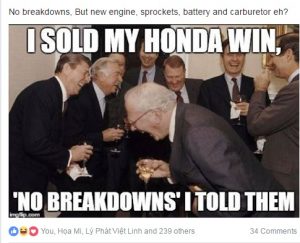
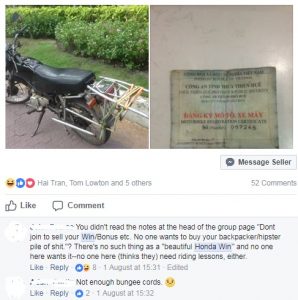
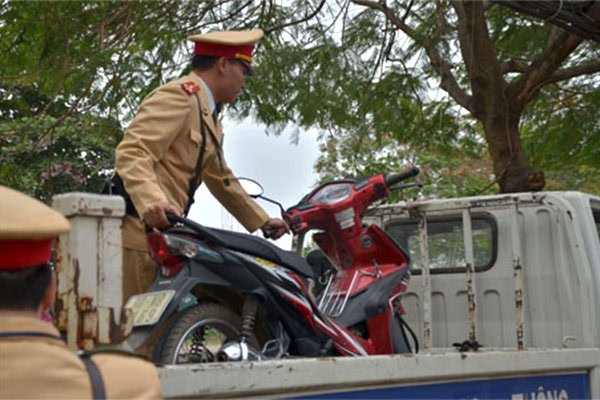
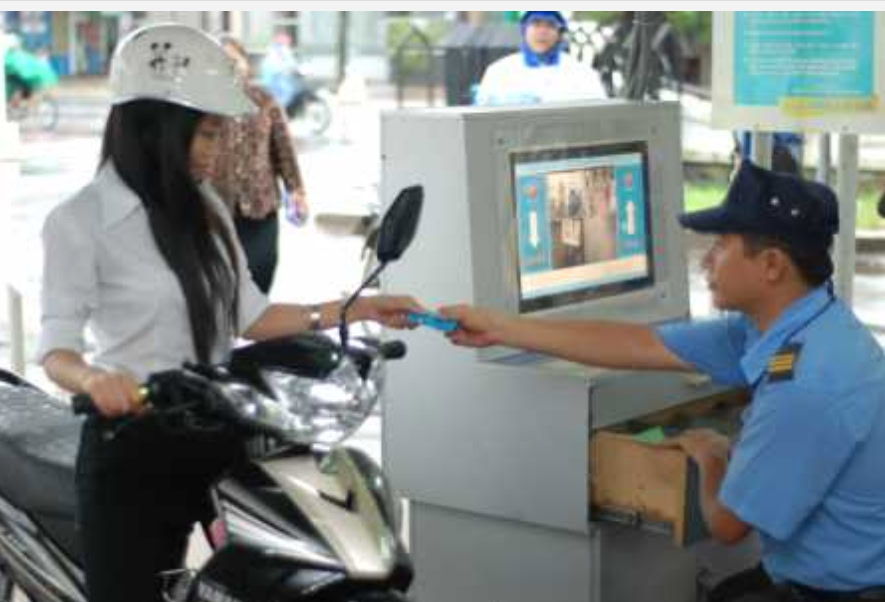


















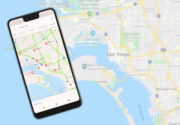





Hello, I would like to know if these informations are still up to date in 2023?
still up to date
Dont know when this has been written but there are two wrong informations. Firstly, in 2021 , if you have a bike worth 1500$ and the owner on the blue card is lost, buyers will care and you will lose money on the resell. I cant think of a bike I bought where the blue card and copy of ID of the owner was not provided , ensuring I can always transfer papers. Opposite to what is said here, dont buy a 1000$+ bike where the owner on the blue card is lost.
Then , about the NN plate. This doesnt lower the value of the bike, and the transfer to a vietnamese national is the same , having personally sold my bike to my brother in law . Took 3 weeks to get the new plate and registration, no hassle, no coffee money . Just need to know where to go and how to do papers. It’s not difficult, just takes time .
Thanks for the feedback.
On your first point, it will lower the value yes. But it isn’t a major issue.
The second point, “you need to know where to go”, is the problem. If you have figured this out, then please share. But if your story remains “you need to know where to go”, then my point stands. It is difficult to transfer because no one knows how to do it.
How can I buy cafe racer bike such as BMW K1000 from Cambodia and permanently used in Vietnam?